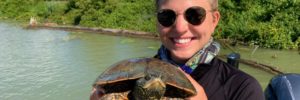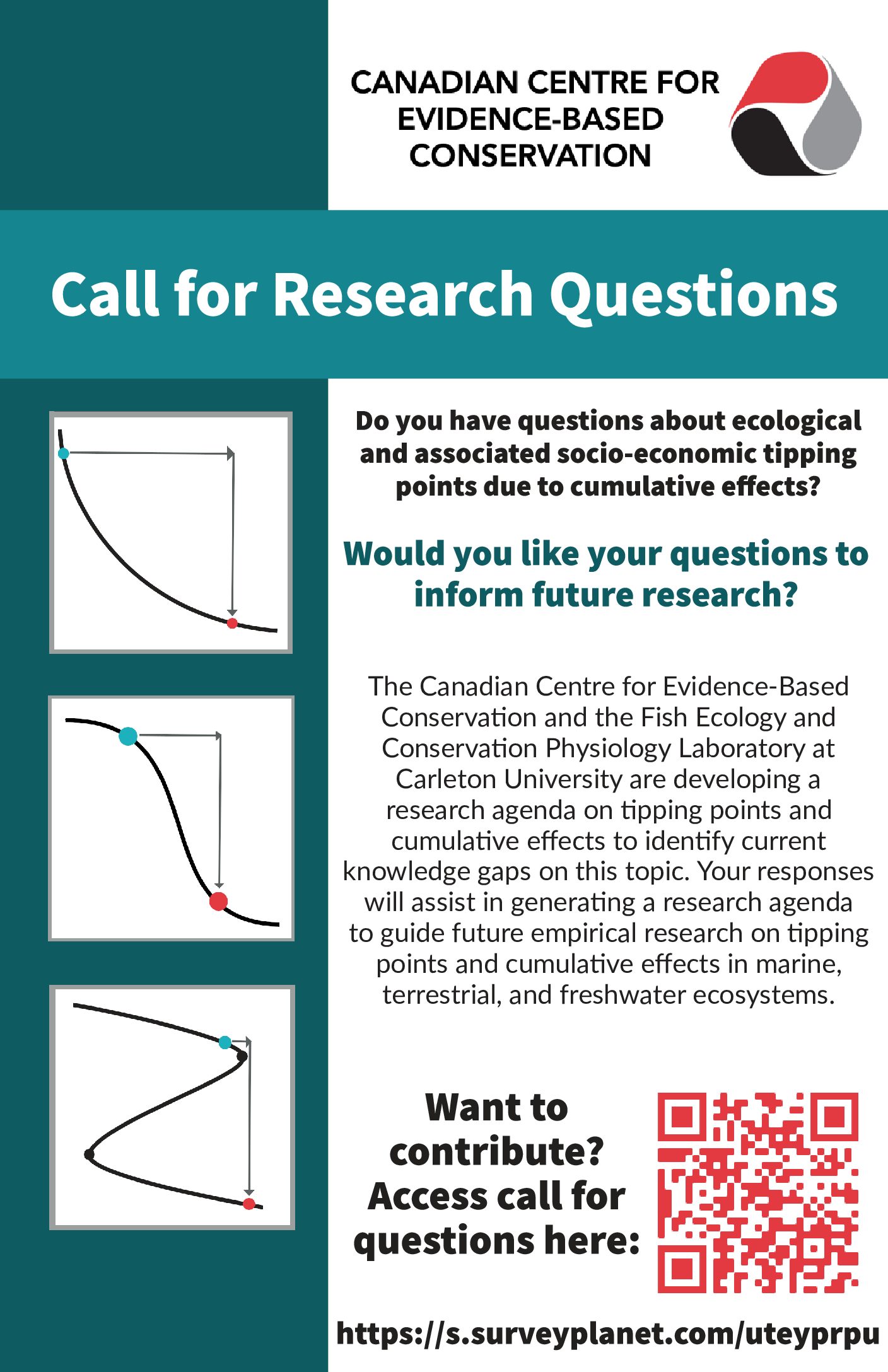Funded By
The Carleton University Research Excellence Fund 2013
Research Team
- Dr. Steven Cooke, Canada Research Chair (Tier 2) in Environmental Science and Biology
- Dr. Lenore Fahrig, Professor of Biology and Director of the Geomatics and Landscape Ecology Lab
- Dr. Graeme Auld, Assistant Professor of Public Policy and Administration
- Dr. Grant Gilchrist, Adjunct Professor of Biology/Research Scientist, Canadian Wildlife Service
- Dr. Karen Smokorowski, Adjunct Professor of Biology/Research Scientist, Fisheries and Oceans Canada
- Dr. Robert Slater, Adjunct Professor of Public Policy and Administration/Consultant
- Dr. Rob Letcher, Adjunct Professor of Chemistry/Research Scientist, Canadian Wildlife Service
- Dr. Charles Francis, Adjunct Professor of Biology/Research Scientist, Canadian Wildlife Service
- Dr. Alexander Wilson, Carleton University
Research Summary
The notion that evidence should serve as the basis for decision making has long been fundamental in the medical realm where systematic reviews (i.e., Cochrane Reviews) are used to identify optimal medical interventions. A similar approach has been advocated for conservation and environmental management such that we do more good than harm. We are developing a Cluster in Evidence-Based Conservation and Environmental Management within the Faculty of Science and in partnership with the School of Public Policy and Administration and several allied agencies (i.e., Environment Canada, Fisheries and Oceans Canada). During the three years that the Cluster will be active (before transitioning to a formal Research Center) the goals are to:
- Establish the structure of the Cluster including a strategic plan (which would consider the development of a new interdisciplinary graduate program) and a communication plan
- Develop and refine expertise related to doing systematic reviews (including doing at least two systematic reviews during the time period),
- Generate interest within Carleton (e.g., through a grad course offered in fall 2014, seminars) and the broader community to identify partnership opportunities related to evidence-based conservation and environmental management,
- Seek funding through the NSERC CREATE program to fund student training opportunities specific to evidence-based conservation and environmental management.
Carleton already has significant strength in the areas of conservation science, the environment and public policy such that this Cluster will codify those relationships and provide a mechanism to be more relevant to government agencies with environmental portfolios. The Cluster will serve as the first node of the international Collaboration for Environmental Evidence in North America thus ensuring that our Cluster is regionally and nationally relevant yet connected with global efforts.




